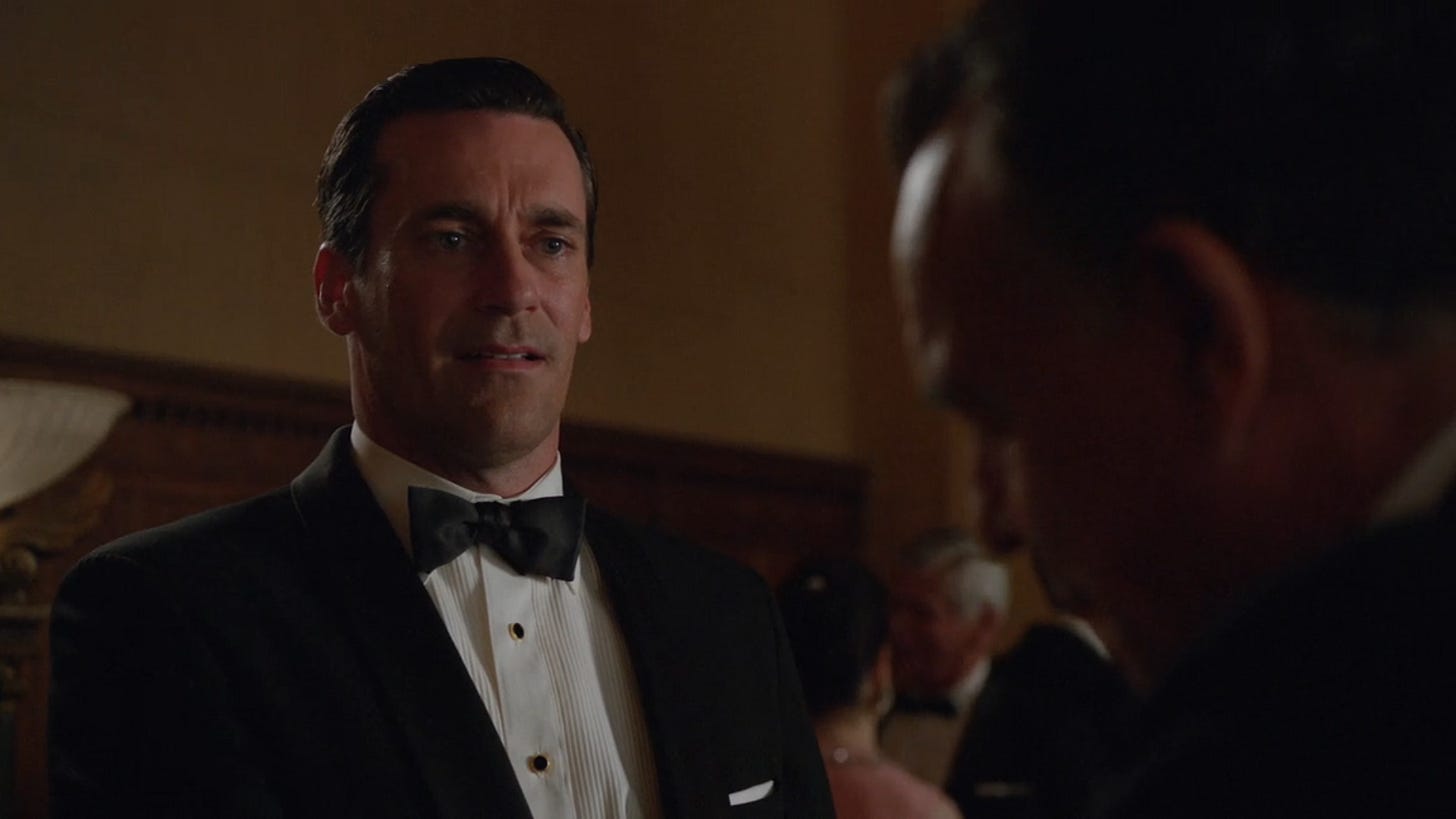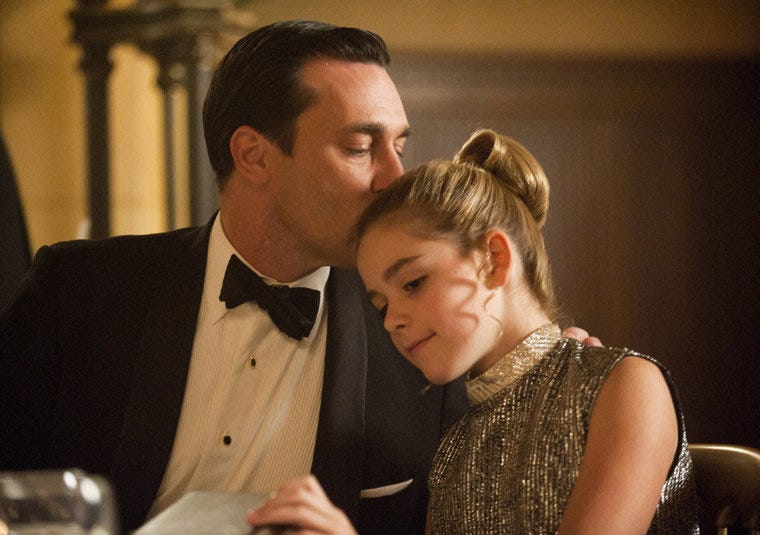Season 5: Episode 7
“At the Codfish Ball”
Written by: Jonathan Igla
Directed by: Michael Uppendahl
Setting: September to October 1966
I observed last season after viewing the beloved episode “The Beautiful Girls” that, while Sally was always going to be an important part of the show, the writers knew they had it good with Kiernan Shipka. She deserved episodes that highlighted her talent. After finally taking the spotlight in 1965, Sally finds herself in 1966 now burning in its glow. The light stalks her along with the expectations of all those who see her standing in it.
Sally Draper desires to be seen but not by the eyes looking at her.

The person she most enjoys spending time with, creepazoid former neighbor Glen Bishop, is a far-away voice on the end of the phone. Having been banished to a boarding school, they connect over distance and reach beyond the surface level world of adults.

She is caught between wanting to be treated like an adult but being disgusted by the adults in her life. Can she grow up to be different from them or is it her destiny to become like her mother or father?
Sally is unhappy but she is not lying to herself that she is.
Don, Megan, and the Calvetts are.

They are told that they have everything.
Don has a beautiful wife and more awards than he would ever want to display.
Megan has risen above just being the boss’s wife and proven herself as an excellent copywriter. Her “Some things never change” pitch for Heinz Beans is one of the best on the show!
The Calvetts are relatively accomplished, long married intellectuals with a daughter devoted to their happiness. Any troubles in their marriage have always been resolved with time.
For Don, the awards mean nothing when there is no work attached to them. Clients don’t trust him after he attacked Lucky Strike, no matter how good his letter was.
Megan is excellent in her copywriting career, but it is not her dream. Her father reminds her of how she came to New York City to be an actress.
The Calvetts are cheating on each other and poisoning the happiness of those around them. Megan’s defense that they always work things out is more of an admission that her parents’ marriage should have ended long ago. Her father’s rage at his failures is ignored in favor of pretending that everything is okay or at the very least will eventually become okay.

Even Peggy joins the lie of living in a happy shadow that others have imagined for her. She decides to move in with her boyfriend Abe because that’s what a happy person would do. Her mother bemoans the decision for all the wrong reasons, which only cements Peggy’s resolve to follow through with the move. You think I’ll be unhappy? Well, now I have to prove you wrong!
The answer to finding happiness is to step out of any lie you’ve deemed comfortable. The Calvetts need to divorce, Don needs to work, Megan needs to follow her dreams.
Unfortunately for Megan, Don does not recognize the dreams of others and the rift between them has already formed. He’ll celebrate her after a successful pitch but not when she lands a big part. In her parents’ fractured relationship, Megan sees a reflection of what she and Don could become: two strangers not even comfortable in a lie.
In contrast, Roger is comfortable in a situation that would have brought any other man to his knees. He has just divorced his younger socialite wife and feels amazing about taking life into his own hands.
Roger understands himself through absurdity. His life-altering LSD trip showed him a vision of the 1919 World Series which was infamously rigged. That was the true end of baseball for some, a sport that was no longer pure. He fears the best part of his life is over and that it will have been his fault. Whatever absurdity Roger gets up to in the remaining years of his life, he will not be lying to himself and he will be happier for that.
Sally is guided by Roger throughout the banquet, but ends the night alone on the phone and telling Glen how she feels about those who are supposed to raise her.
They are “dirty” and she will just become filthy by associating with them.
She has to create an understanding of life beyond what the adults tell her. There sadly isn’t a stable adult that can hold her hand through the insanity of the 1960s.
We see Sally’s future more clearly than any other character. Her life will be forever haunted by the past, but she will do whatever she can to keep that life clean.
Sally will not marry a man who is her boss. She will follow a career even if others she loves tell her not to. She will stand up to anyone who may disrespect her.
Formative seeds of trauma will be answered in Sally’s adulthood, a strong young woman who refuses to be destroyed by the mistakes of her family.
She will not be destroyed by the mistakes of adults.
When the show ends, Sally is the only one who has it together. Forced to grow up, not forced to act like the grown ups she knows.
Sally will not poison the lives of those she loves, even if they poison her.






